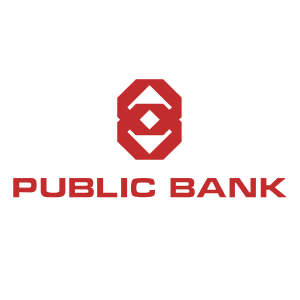
Hong Leong Bank Bhd
KLSE:HLBANK


Utilize notes to systematically review your investment decisions. By reflecting on past outcomes, you can discern effective strategies and identify those that underperformed. This continuous feedback loop enables you to adapt and refine your approach, optimizing for future success.
Each note serves as a learning point, offering insights into your decision-making processes. Over time, you'll accumulate a personalized database of knowledge, enhancing your ability to make informed decisions quickly and effectively.
With a comprehensive record of your investment history at your fingertips, you can compare current opportunities against past experiences. This not only bolsters your confidence but also ensures that each decision is grounded in a well-documented rationale.
Do you really want to delete this note?
This action cannot be undone.

| 52 Week Range |
18.56
21.84
|
| Price Target |
|
We'll email you a reminder when the closing price reaches MYR.
Choose the stock you wish to monitor with a price alert.
This alert will be permanently deleted.
 Hong Leong Bank Bhd
Hong Leong Bank Bhd
 Hong Leong Bank Bhd
Long-Term Debt
Hong Leong Bank Bhd
Long-Term Debt
Hong Leong Bank Bhd
Long-Term Debt Peer Comparison
Competitors Analysis
Latest Figures & CAGR of Competitors

| Company | Long-Term Debt | CAGR 3Y | CAGR 5Y | CAGR 10Y | ||
|---|---|---|---|---|---|---|

|
Hong Leong Bank Bhd
KLSE:HLBANK
|
Long-Term Debt
myr7.2B
|
CAGR 3-Years
27%
|
CAGR 5-Years
19%
|
CAGR 10-Years
-2%
|
|

|
RHB Bank Bhd
KLSE:RHBBANK
|
Long-Term Debt
myr16.2B
|
CAGR 3-Years
13%
|
CAGR 5-Years
1%
|
CAGR 10-Years
5%
|
|

|
Public Bank Bhd
KLSE:PBBANK
|
Long-Term Debt
myr17.3B
|
CAGR 3-Years
1%
|
CAGR 5-Years
0%
|
CAGR 10-Years
3%
|
|

|
Malayan Banking Bhd
KLSE:MAYBANK
|
Long-Term Debt
myr29.2B
|
CAGR 3-Years
-2%
|
CAGR 5-Years
-4%
|
CAGR 10-Years
-1%
|
|
|
H
|
Hong Leong Financial Group Bhd
KLSE:HLFG
|
Long-Term Debt
myr7.9B
|
CAGR 3-Years
19%
|
CAGR 5-Years
13%
|
CAGR 10-Years
-5%
|
|
|
C
|
CIMB Group Holdings Bhd
KLSE:CIMB
|
Long-Term Debt
myr22.9B
|
CAGR 3-Years
-6%
|
CAGR 5-Years
-8%
|
CAGR 10-Years
-2%
|
|
Hong Leong Bank Bhd
Glance View
Hong Leong Bank Bhd, a pillar in Malaysia's banking sector, has established itself as a dynamic player in the financial services industry since its inception in 1905. With a robust network of over 300 branches across Malaysia and a presence in key markets like Vietnam, Hong Kong, and Cambodia, the bank offers a diverse range of products and services tailored to meet the needs of its clients. Its commitment to technology innovation is exemplified by significant investments in digital banking, aimed at enhancing customer experience and expanding its reach. Hong Leong has demonstrated resilience and adaptability in an evolving economic landscape, successfully navigating challenges with a prudent approach to risk management and a focus on sustainable growth. Under the astute leadership of its management team, Hong Leong Bank has consistently reported steady financial performance, characterized by healthy asset growth and disciplined expense management. With a strong emphasis on retail and commercial banking, the bank also focuses on strategic partnerships and lending solutions that cater to small and medium-sized enterprises, a sector critical to Malaysia's economy. Investors are drawn to Hong Leong's solid dividend history, strong capital ratios, and ambitious plans for future expansion, indicating a promising trajectory for growth. As Malaysia continues to progress economically, Hong Leong Bank stands poised to capitalize on emerging opportunities, making it an attractive consideration for any investor looking to delve into the region's banking landscape.

See Also
What is Hong Leong Bank Bhd's Long-Term Debt?
Long-Term Debt
7.2B
MYR
Based on the financial report for Jun 30, 2024, Hong Leong Bank Bhd's Long-Term Debt amounts to 7.2B MYR.
What is Hong Leong Bank Bhd's Long-Term Debt growth rate?
Long-Term Debt CAGR 10Y
-2%
Over the last year, the Long-Term Debt growth was 13%. The average annual Long-Term Debt growth rates for Hong Leong Bank Bhd have been 27% over the past three years , 19% over the past five years , and -2% over the past ten years .


 You don't have any saved screeners yet
You don't have any saved screeners yet
